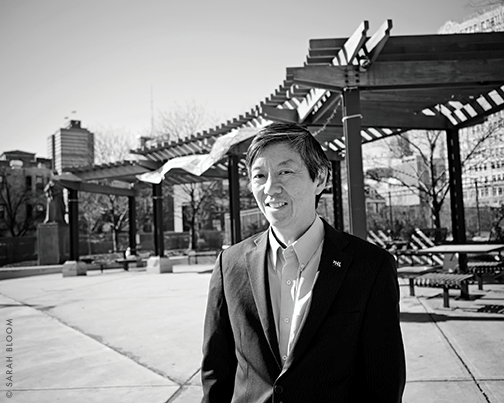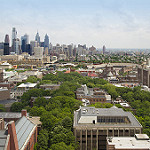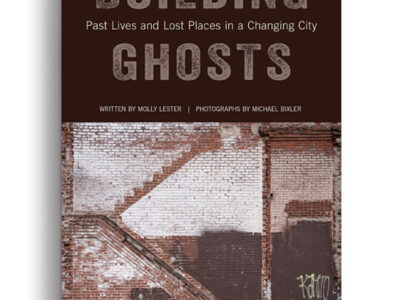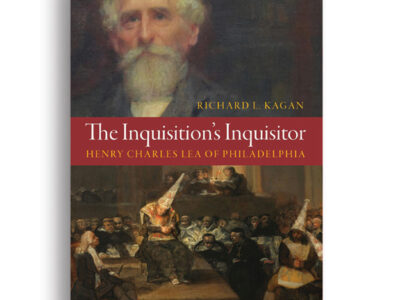
Class of ’80 | By the time he was hired three years ago to be the managing director of Philadelphia’s Eastern Tower Community Center (ETCC), Andy Toy C’80 G’81 had already been pushing the project for more than a decade.
A longtime board member of the nonprofit Philadelphia Chinatown Development Corporation (PCDC), Toy was one of the leading advocates for bringing a community center to the city’s Chinatown neighborhood, one that would provide a residential component and office space in a sustainable and vibrant building. But there have been plenty of obstacles along the way. The center is slated to cost $75 million, a formidable sum for a nonprofit to raise, and even many of its supporters doubted that the PCDC could bring the project to fruition.
“Persistence is definitely a necessary ingredient,” Toy says. “You need a strong vision and a really able team. Sometimes in fundraising, it’s like a snowball. It started small but it grew pretty quickly.”
This past October, Toy and his team finally got the “breakthrough we really needed” when they secured a $3.7 million Economic Growth Initiative grant from the Commonwealth of Pennsylvania. That, combined with money Toy raised through other grants and private equity, was enough to get to financial closing on the mixed-use residential, retail, and community center, which is being hailed as a game-changer for Chinatown. Construction will begin this spring.
“He has been relentless,” city councilman Mark Squilla said at the October press conference announcing the grant, standing a stone’s throw away from where the tower will be erected on the northwest corner of 10th and Vine streets. “I would say to him, ‘Andy, I don’t have any money.’ He’d say, ‘Can you find it somewhere?’ We were able to push forward because of that relentlessness.”
Toy had seen the project stall before—partly because of other distractions the Chinatown community had to contend with (like its intense and ultimately successful opposition to the Philadelphia Phillies’ plan to build a new ballpark at 12th and Vine), but also because of the very steep pricetag.
Toy zeroed in on the state soon after he was hired in April of 2012. It took more than two years of dogged persistence before the breakthrough grant finally came through.
“I think I inherited some of that from my mom,” saysToy, who left his job at PCDC at the end of 2014, having secured the necessary funding. “She gets a hold of a bone and you’re not going to get it off of her. She’s got a strong will, and I picked up a little of that, I hope.
“I’m softer though,” he adds with a smile. “I’m more, ‘Maybe we can work together.’”
Toy has certainly needed that mix as he’s forged a career in politics and economic development, having worked for Philadelphia’s commerce department and taken a couple of unsuccessful runs at city council. And while he’s pleased with some of the things he accomplished for the city—including the redevelopment of abandoned properties at various environmentally challenged sites—he firmly believes that the ETCC will be the most important.
In addition to generating nearly 1,000 temporary construction jobs and a smaller number of permanent jobs, the location of the tower will serve as an important bridge connecting the main section of Chinatown to what’s known as Chinatown North. As it stands now, the Vine Street Expressway is a major impediment that’s hampered the development and safety of that northern section, which stretches from Vine Street to Spring Garden.
“We picked that corner because it’s the most important corner in Chinatown right now,” Toy says. “It is the gateway to the north. It’s getting us across this artificial barrier of the Vine Street Expressway.”
Completed in the early 1990s, the Vine Street Expressway (also known as Interstate 676) has caused myriad problems for the Chinatown community and led to the formation of the PCDC, whose stated mission is to “preserve, protect and promote Chinatown as a viable ethnic, residential, and business community.”
The community center is expected to draw tens of thousands of visitors each year, and Toy believes it will spark new development that will allow Chinatown to expand and thrive.
“Psychologically, it changed how people think of the areas in the north,” Toy says. “This has been years in the making, trying to figure out how to expand back across. The community keeps growing. People keep coming here from overseas and New York. It really is the barrier that stopped a lot of stuff from happening.”
Toy is also excited about the ETCC’s potential to help families once construction is completed in roughly two years. A third-generation Chinese American, he has a particular vision of a grandmother taking a child to preschool before going upstairs to the health center, and has high hopes for the synergistic potential of a building that “brings all services and programs in one place.”
Toy is also thrilled that the center will house Chinatown’s first recreational facility and create a new home for the Philadelphia Suns, the community’s youth recreational basketball league. Currently, its nine teams either play in the backyard of a local church or travel some distance to the nearest indoor facility.
“It doesn’t make a lot of sense,” says Toy. “And it’s absolutely not fair. Every other neighborhood with a lot of kids in it has a community center or a rec center.”
Because many of these plans have been talked about for so long, Toy admits there’s still a segment of the community that will only believe it “when they see it built and it becomes real.” But he’s already thinking about walking through the ETCC doors for the first time.
“I better get into basketball shape,” he laughs. “I want to use it.”
—Dave Zeitlin C’03




